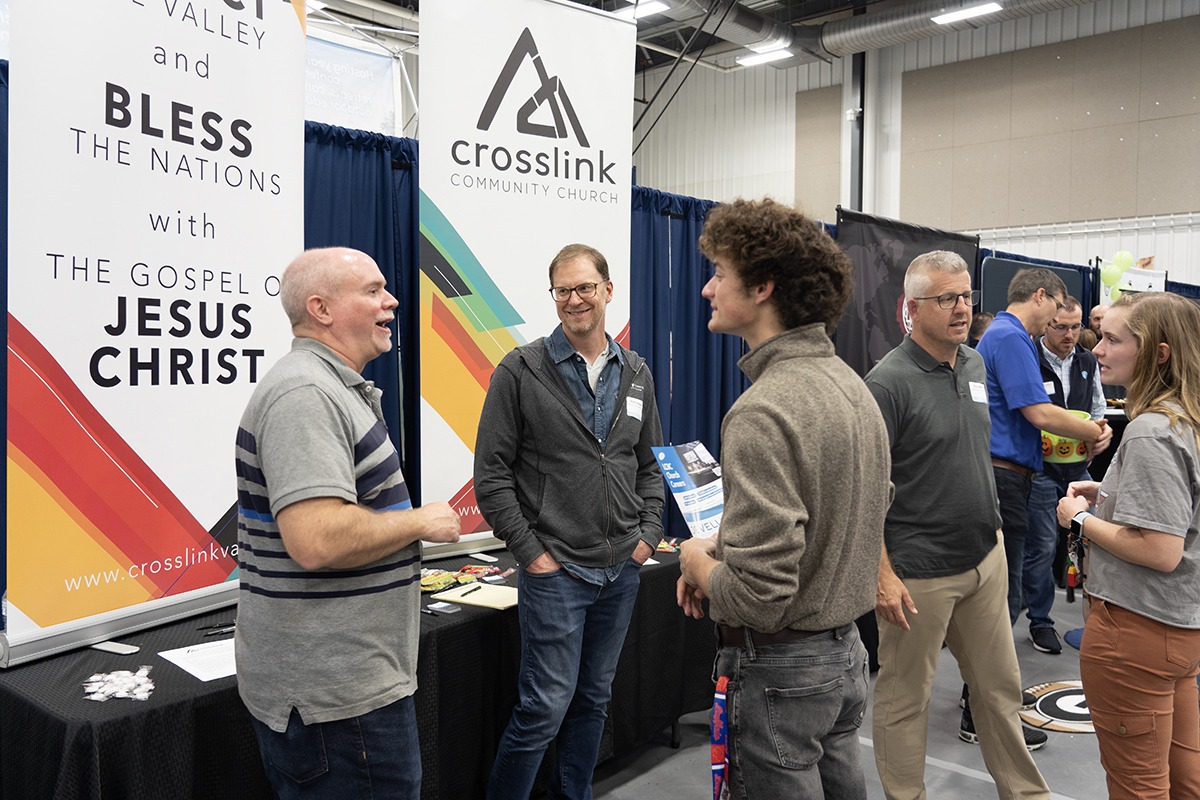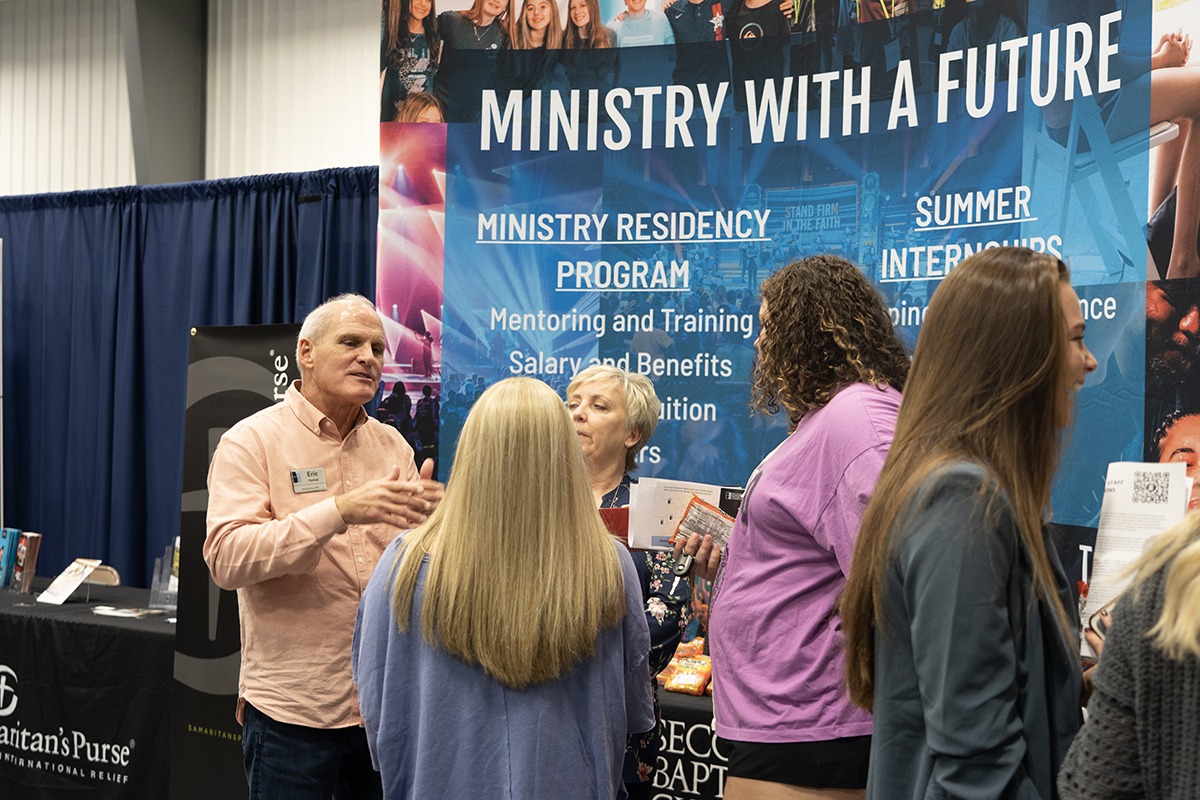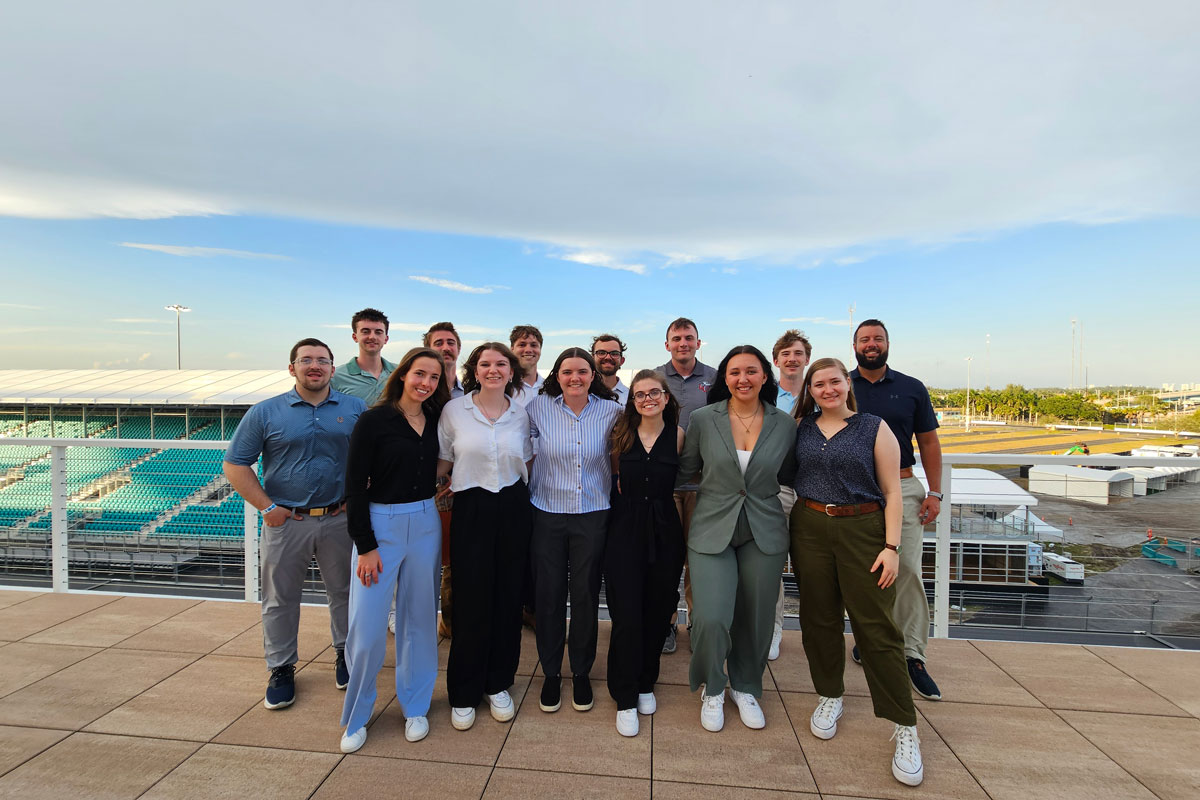Search News Archives
Filter News Articles
Additional Navigation
Church Advancement Week connects students with job opportunities as part of Liberty’s original mission
November 10, 2022 : By Jacob Couch - Office of Communications & Public Engagement

The Liberty University John W. Rawlings School of Divinity held a Church Advancement Week last month, highlighted by their annual Ministry Fair on Oct. 25 that saw over 1,000 students and over 100 ministry organizations attend. The week sought to reach every department on campus with Liberty founder Dr. Jerry Falwell’s vision of planting churches across America that are Gospel centered and Biblically grounded.
The School of Divinity’s Director of Experiential Learning John Armstrong explained why the ministry fair is specifically essential to helping to get students plugged into internships and potential jobs.
“We really want to use the fair as an opportunity for the ministries to sign up students to interview,” he said, noting that some of the ministries stayed in town for the majority of the week to be able to interview as many students as possible.
In addition to the ministry fair, which is one of the largest academic fair hosted on Liberty’s campus, Church Advancement Week also offered smaller events throughout the week that connected recent and future graduates with ministry job opportunities.
“The biggest message that we communicated with Church Advancement Week was the primary message that we communicate within the Center for Church Advancement: to try and help students surrender their vocational calling for the glory of God,” Director for the er for Church Advancement Dr. Chris Dowd said.
He said the message is for students of all majors.
 “We Train Champions for Christ here, and that means that once they leave here, they’ll champion Christ in whatever field God’s called them to vocationally. We’re trying to help them to see the connection (they need to have) with the local church. The mechanism by which He desires to display the manifold wisdom of God is through the Church.”
“We Train Champions for Christ here, and that means that once they leave here, they’ll champion Christ in whatever field God’s called them to vocationally. We’re trying to help them to see the connection (they need to have) with the local church. The mechanism by which He desires to display the manifold wisdom of God is through the Church.”
While the School of Divinity initiated the week, Dowd and Armstrong made it their aim to reach every student with the importance of understanding the need for healthy church plants nation-wide.
“All 16,000 residential students who are walking around this campus are potential church planting team members,” Dowd said.
He shared how the Center for Church Advancement seeks to fulfill Falwell’s vision.
“The biblical model, and I believe the more fruitful model, is that we have to reach, serve, and love a city in order to make disciples,” Dowd said, pointing out that in the New Testament the Apostles and their fellow missionaries used this model before establishing leaders to oversee the young congregations. “It’s the difference in church starting and church planting.”
Dowd said to do this effectively, all realms of the workplace need to be infiltrated with believers, which is why it is not only School of Divinity students who need to be a part of church planting teams.
“You’ll be a part of a church planting team because you are planting the Gospel in a city and multiplying disciples in that city — in your home, in your workplace, in your cubicle, in your office, in your classroom, wherever you are.”
While some organizations were on campus for just a couple of days, others remained for the entire week, creating time to interview prospective students for summer internship opportunities and job openings.
Dowd hopes to one day have a map on display that points out the locations where every church planting team sent out by Liberty is going to, offering students from all majors the opportunity to take their vocation to one of those cities while seeking to be a part of that body of believers. He even envisions a preparation phase that starts before the students graduate.
“I would love to see a day when all of Liberty’s schools are working together (on) everything a church plant needs and during the gestational phase of preparation and development, everything is housed here on this campus and can be prepared by student projects,” he said, citing the example of a graphic design class offering students the opportunity to create graphics for a Liberty-sent church plant team as a class project.
“It would be so much more than a (map) on campus, but a conversation that exists in every school on campus,” he added. “Now that would take a lot of work, but I believe that every dean here has a desire to Train Champions for Christ in their school.”
While Church Advancement Week was primarily geared toward church planting, it also contained an element of church revitalization, another important arm of the center.
“We want to help churches to become healthy internship locations,” Dowd said. “We are going to be creating a packet with resources, books, articles, and things that will help equip existing churches.”
He implied that the pattern of unhealthy churches planting more unhealthy churches needs to come to an end.
“If there’s any school that can speak into church health and healthy multiplication models nationwide, it’s Liberty. We’re just now starting to get into that conversation, and Church Advancement Week helps us to get the ball down the field a few yards, but we certainly have a lot of ground to cover.”
The Center for Church Advancement has a focus on church planting, church revitalization, and church resourcing and is in partnership with the North American Mission Board. The center is building on Liberty founder Dr. Falwell’s original vision of planting 5,000 churches, a goal he initiated and surpassed that began in the early years of the university’s history.
For more information on the center, contact churchadvancement@liberty.edu.


